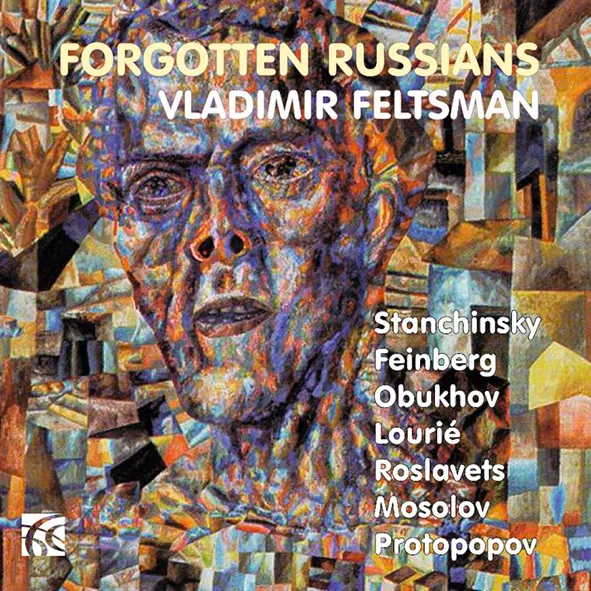
Forgotten Russians Works by Feinberg, Lourié, Mosolov, Obukhov, Protopopov, Roslavets and Stanchinsky Vladimir Feltsman (piano) Nimbus Alliance NI 6377 74:19 mins
All seven composers featured here were born during the last two decades of the 19th century, yet each had his own highly distinctive creative profile, despite (as Vladimir Feltsman points out in his outstanding and extensive annotations) falling to varying degrees under the spell of Scriabin’s mysticism. This is felt perhaps most profoundly in Nikolai Roslavets’s Five Preludes (1919-22), whose aphoristic trajectory and harmonic incense might almost have been composed in tribute (Scriabin died in 1915).
Alexei Stanchinsky drowned aged just 26 (probably suicide), yet his stylistic reappropriations – as witness the Prelude in the Lydian Mode and four of the ten Op. 1 Sketches included here – left an indelible mark on the work of Prokofiev (especially) and Shostakovich. Nikolai Obukhov was more overtly radical, creating psychologically probing soundworlds of claustrophobic intensity, while Samuil Feinberg (although no less harmonically intricate) is more sensually beguiling. Arthur Lourié was the most stylistically wide-ranging – his A Phoenix Park Nocturne, written after moving to America, is one of the highlights of the collection. Alexander Mosolov, on the other hand, tended towards the rhythmically pungent and imposing, as did Sergei Protopopov, whose 16-minute Second Sonata turns out to be a whirlwind of dazzling invention. Feltsman plays these endlessly fascinating and hauntingly memorable scores with astonishing virtuosity and tonal sensitivity. Whether exalting in Protopopov’s explosions of sound or merely breathing (it seems) on the keys in Feinberg’s Berceuse, it is impossible to imagine a more profoundly sympathetic advocate of this inexplicably neglected repertoire, complemented throughout by beguilingly natural engineering from Adrian Farmer.
Julian Haylock